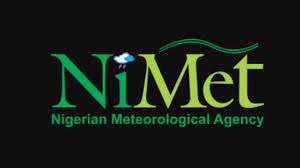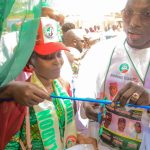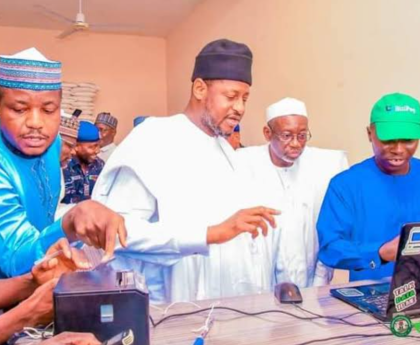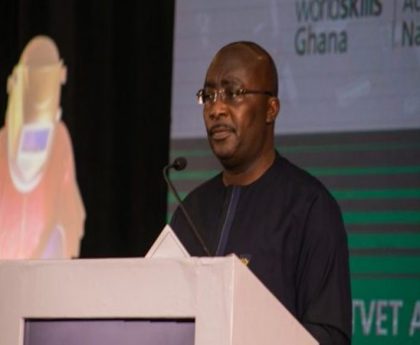Prof. Mansur Bako Matazu DG/CEO NiMet
In this interview, the Director General / Chief Executive Officer of the Nigerian Meteorological Agency (NiMet), said the country’s leadership role in meteorological and climate science education in West Africa is as a result of the passion and total commitment of President Muhammadu Buhari to the subsector.
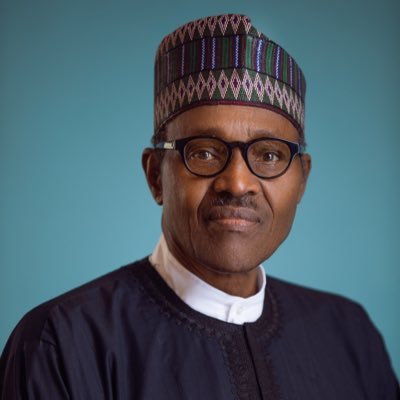
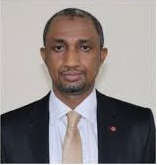
The Katsina – born permanent representative of Nigeria in World Meteorological Organization (WMO), assures that Katsina and indeed are set to benefit more from the field, because the President placed a lot of value on climate change and climate smart initiatives for Nigeria.
Under Prof. Matazu’s stewardship, the Muhammadu Buhari Meteorological Institute of Science and Technology (MBMIST), Katsina, the first of its kind in West Africa, has recorded remarkable achievements, including having the highest number of professors in Katsina State at a time and undergoing accreditation for Higher National Diploma (HND) in Climate Change Science and Electro – Meteorological Technology, among others.
Excerpts
Q: You just had a visitor, Mr. President, who you have taken round, as journalists, we are eager to know, what did you discuss with him?
A: Actually, to provide an entry point, our Honourable Minister of Aviation, Sen. Hadi Sirika, invited Mr. President as part of Katsina State visit activities to also commission this institute, which the President graciously approved including its renaming to Muhammadu Buhari Meteorological Institute of Science and Technology; the first of its kind in the country today.
The institute has been running programmes in climate change and Meteorology and related electrical and technical courses which also have the full accreditation of the NBTE and WMO. This school is part of the capacity building initiatives under NiMet that is under the supervision of Federal Ministry of Aviation.
Today is a big day for us, we just had the renaming of the institute and also having the Nigerian number zero zero one to commission this and also accept the renaming of the institute to Muhammadu Buhari Meteorological Institute of Science and Technology and because of his passion which goes beyond national development to issues concerning climate change, impact and vulnerability, adoption and mitigation.
So, this centre will serve its objective to also improve the capacity of personnel of NiMet service and other relevant and related sectors in agriculture, health and environment for all to now provide climate smart solutions through advice and information because the school will serve as an extension pivotal centre whereby we train and also retrain young personnel from the zone and beyond, even in parts of Africa, to now come and get first hand information which will serve as simulation practice here.
I will give an example here; what we monitor, we monitor in all ramifications 41 parameters across the country and this is one point. Whatever you see here is a replication of what we have in more than 100 stations that we have across the country. So this is contributing to that and also serving in our capacity building initiatives.
Q: We learnt that this institute is the first to offer diploma or national diploma in meteorology in West Africa, if not in Africa. Can you shed more light on this?
A: You know, Nigeria is a member of World Meteorological Organization (WMO) and by implication, we are also member of the executive council. The knowledge of meteorology is scarce because we don’t have enough schools across the world. As a result of this, our honourable minister came up with a concept and based on the challenge he has given us to develop a curriculum of diploma in meteorology and national diploma in climate change science, this is the first of its kind in West Africa and Nigeria; it’s also assisting other Africa countries.
Based on that assistance, this centre will also serve as a capacity building centre for some of these neighbouring countries. Presently, we have personnel of meteorological service in Gambia and Niger understudying NiMet and the plan is that they will be in this school and the plan is for the (the countries) to send more than 50 personnel from their countries who will be trained in this centre and Katsina is very central and we have daily flights coming in, we also have ambient environment, as you have seen, that can provide conducive environment for learning.
We are also in the process of getting full accreditation to run HND programmes because the first set of this national diploma programme, the second stream programme, will be graduating in the next three months, in April, to be precise.
We want the first graduates to be enrolled for the continuation of their HND programmes. In addition to that, we want to expand into engineering: the knowledge of using local technology to develop climate smart solutions across all sectors.
Q: Do you think the institute has the capacity to deliver on this training?
A: Yes, because for us in NiMet, we have been running training centres since 1957 and this is just one of it. Of course, in conceptualizing this centre, we came up with internal and external sourcing of experts in the subject matter. So, we have our experts in NiMet staff that we call facilitators that are here and we also have professors and researchers from across higher institutions across the country who come as visiting, part time and sometimes as adjunct lecturers, who now mentor the students.
There was a time that in this school, we had the highest number of professors in this state. So, we have more than enough capacity and our students who went on IT of recent, came back with excellent remarks from their employers during the IT programme. So, we are up to the task, I guess.
Q: What was the impression of Mr. President after going round the institute?
A: Actually, he has been part of this team. The initial concept was for him to come and commission the institute but he took his time because of his interest and he took his time to go round all nooks and crannies and monitored all the facilities including the weather station and climate change resource centre and the classrooms, academic area.
He also entered some of our laboratories and also took interest in some of what we are doing; he also visited the admin block and saw what we call NiMet At a Glance.
During the visit, he showed great interest, as you have seen, he was even asking questions step by step and that must have been triggered by especially his interest in climate change and climate smart initiatives for Nigeria as a nation.
Q: How many courses have been accredited in this institute?
A: We have two courses: National Diploma in Meteorology and National Diploma in Climate Change Science and we are also undergoing accreditation accreditation for Higher National Diploma in Meteorology, HND in Climate Change Science and HND in Electro Meteorological Technology which we are expecting in the next few weeks.
Q: How many students are in the institute?
A: For now, we have 170 students in both streams and they are from all parts of the country and in the next stream, we are even expecting foreigners that will come and out of this population, about 30% of them are females because there is implication of gender equity and gender balance in climate change initiatives.
Q: Recently, the President signed the Establishment Act for NiMet, please, how will this impact on the agency’s service delivery?
A: Thank you very much. Part of our appreciation to Mr. President is for the 100% release of all our budgetary provision in addition to signing, after repealing by the National Assembly, of NiMet Establishment Act 2022. We have a brand new upgraded Act that gives us more authority to control, regulate and also report weather information across the country.
This will definitely increase our relevance, will increase our interactional and user communication and of course, it will increase our sources of revenue and sustainability as an agency.
Q: Does this mean that Nimet has the power to sanction people who operate Meteorological stations without approval from NiMet?
A: Actually, we are taking an inventory of all existing weather stations across the country and we are going to operate and regulate them according to WMO standards.
We are going to link their services to our national data base and make sure that they follow due process because weather parameters are sensitive after utilization, they can give wrong information.
So, we have calibration laboratory that will help us to regulate it and make sure that what we are getting from Nigeria as a country in weather observation, weather reporting, climate information is up to global and WMO standards.
We are going to link their services to our national data base and make sure that they follow due process because weather parameters are sensitive after utilization, they can give wrong information.
So, we have calibration laboratory that will help us to regulate it and make sure that what we are getting from Nigeria as a country in weather observation, weather reporting, climate information is up to global and WMO standards.
Q: Can NiMet impose fines now?
A: Yes. We have regulations on weather and climate services and we are now conducting sensitization based on every sector. We have signed MoU with most of the sectors in water resources, NIMASA in maritime sector and very soon we are going to sign MoU with some state governments including NNPC in order to monitor and to make sure that what we are getting, whether in climate or whether water related information is up to global standards.
###### ######
